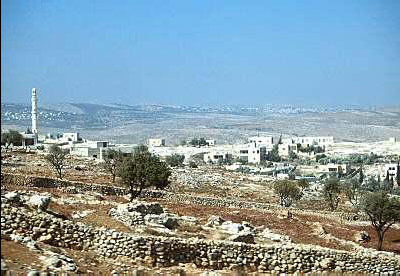Geba
 |
Also known as Gaba and Jeba'. Geba was given Benjamin (Josh. 18:24) but set aside for the Levites (Josh. 21:17). This is evidently the base camp for Saul and Jonathan in their fight with the Philistines (1 Sam. 13:16-14:18), though the Hebrew texts and modern translations confuse Geba and Gibeah here. King Asa of Judah (910-869 B.C.) strengthened the city (1 Kings 15:22). In the days of King Josiah (640-609 B.C.) Geba apparently represented the northern border of Judah as opposed to the southern border in Beersheba (2 Kings 23:8). Isaiah described the ominous march of the Assyrian army coming through Geba on its way to Jerusalem (Isa. 10:29). For Zechariah (Zech. 14:10), Geba represented the northern border of a Judah to be flattened out into a plain dominated by God ruling on Mount Zion in Jerusalem. At some period Geba’s inhabitants were forced to move to Manahath (1 Chron. 8:6), perhaps when the tribe of Benjamin first settled there or during the Exile. Exiles returned to Geba under Zerubbabel (Ezra 2:26). Some citizens of Geba lived in Michmash and other cities in Nehemiah’s day, unless the Hebrew text is read differently (REB) to mean they lived in Geba as well as the other towns (Neh. 11:31). Levite singers lived there (Neh. 12:29). Holman Illustrated Bible Dictionary |